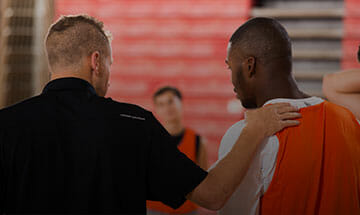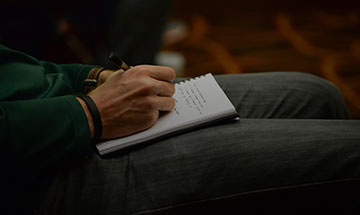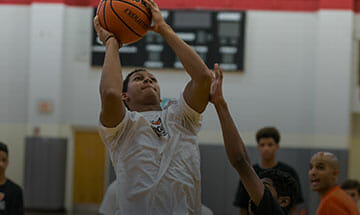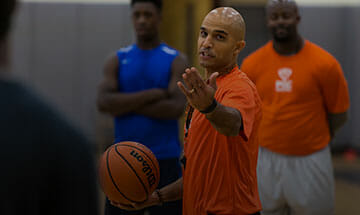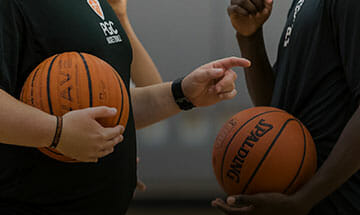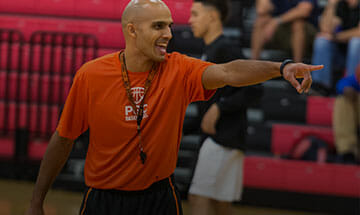The founder of PGC Basketball, Dick was a highly decorated high school and college player who was regarded as the prototypical “coach on the court.” He was named as the best high-school point guard in America by Parade Magazine and went on to earn Academic All-American and Atlantic Coast Conference (ACC) all-star honors at Duke. Later, he played and coached professionally in Europe and South America.
An English major and lover of literature, Dick authored five books during his lifetime—including STUFF! Good Players Should Know, praised as “the ultimate guide to playing the game the right way” by Larry Brown, the only coach ever to win both NCAA and NBA championships. Devenzio was considered by many to be a basketball genius, and Dick’s books continue to influence basketball lovers all over the world and have been translated into several foreign languages.
During college, Devenzio began running his own summer basketball camps, and he continued to offer sessions every summer until his sudden death in 2001 at just 52 years of age. The program he was most proud of, however, was the nationally acclaimed Point Guard Basketball College, the predecessor of PGC Basketball. Although Dick’s ingenuity, humor, and creativity are missed, his principles, ideas and teaching remain at the core of PGC's programs.
3-Step Formula for Players to Overcome Losing
No one is ever quite sure about how a basketball player is supposed to act after a loss. It doesn’t seem necessary to cry for a week, especially since you’re likely to have another game within that time; yet it doesn’t seem quite right to walk off the court laughing either.
Dear Coach DeVenzio: Other Competitive Basketball Camps for Young Players?
Q & A: I have an extremely talented 12 year old (6th grader) who plays in AAU and “cruises” through the league. I think he would be a great candidate to attend your basketball camp in a couple of years or as soon as you’ll take him. Do you know of another highly competitive guard or point guard basketball camp that I could send him to in the mean time?
How This Tiny Thing Separates Good Teams From Bad Ones
Season after season, teams called “great” get four or five or even 10 victories a year by only a few points over teams called “mediocre” or “bad.” Think about that. A few points, a couple of plays, a missed rebound, a loose ball, a low percentage shot someplace instead of one more pass and a higher percentage shot. How do some some people win consistently (by a few points) while others lose consistently (often only by a few points, too)?
Nod to the Coach
When your coach tells you how he wants you to do something, if you understand what he is telling you, nod to him. This seems like an obvious thing, and hardly a tip for a good basketball player yet very often players fail to do this. Nodding to the coach tells him you understand his instruction, and more importantly it gives the coach a good feeling about telling you.
Basketball Blog: Busy, Not Troublesome, Parents
No coach is immune from meddlesome parents. I don’t mean to imply that all players’ parents are problems, but every coach has had those problems and, if hearsay has any validity, I would guess that parental problems are becoming more rather than less prevalent these days.
Basketball Blog: Attitude….Defined
Attitude is probably the most important aspect of the game. What is your attitude? All of us have a good attitude when things are going well; when we’re the stars of our teams and winning big games, but what’s your attitude when your team is losing?
Pavlovian Basketball
Basketball is a thinking game but, as a coach, one of your major responsibilities is to take as many situations as possible out of thought processes and turn them into quick
Why Excuses are So Bad
Excuses hurt teams, not just because they waste time and kill team morale (and a coach’s morale), but because they reveal that the player making them has a very off-line focus. An excuse-maker can’t possibly be using his energy thinking about how to enhance what is going on or about to go on because, obviously, he is putting his time into explanations and justifications.

